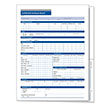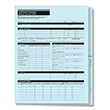
Over 35 Years of HR Experience
Everything we sell is backed by over 35 years of experience and comes with expert guidance.

Unsurpassed Customer Service
Our customer service is second to none. Have a question? Our HR product specialists are here to help.

Product and Service Guarantee
Everything we sell is covered by our unmatched HRdirect Product and Service Guarantee.


 Shopping cart
Shopping cart


